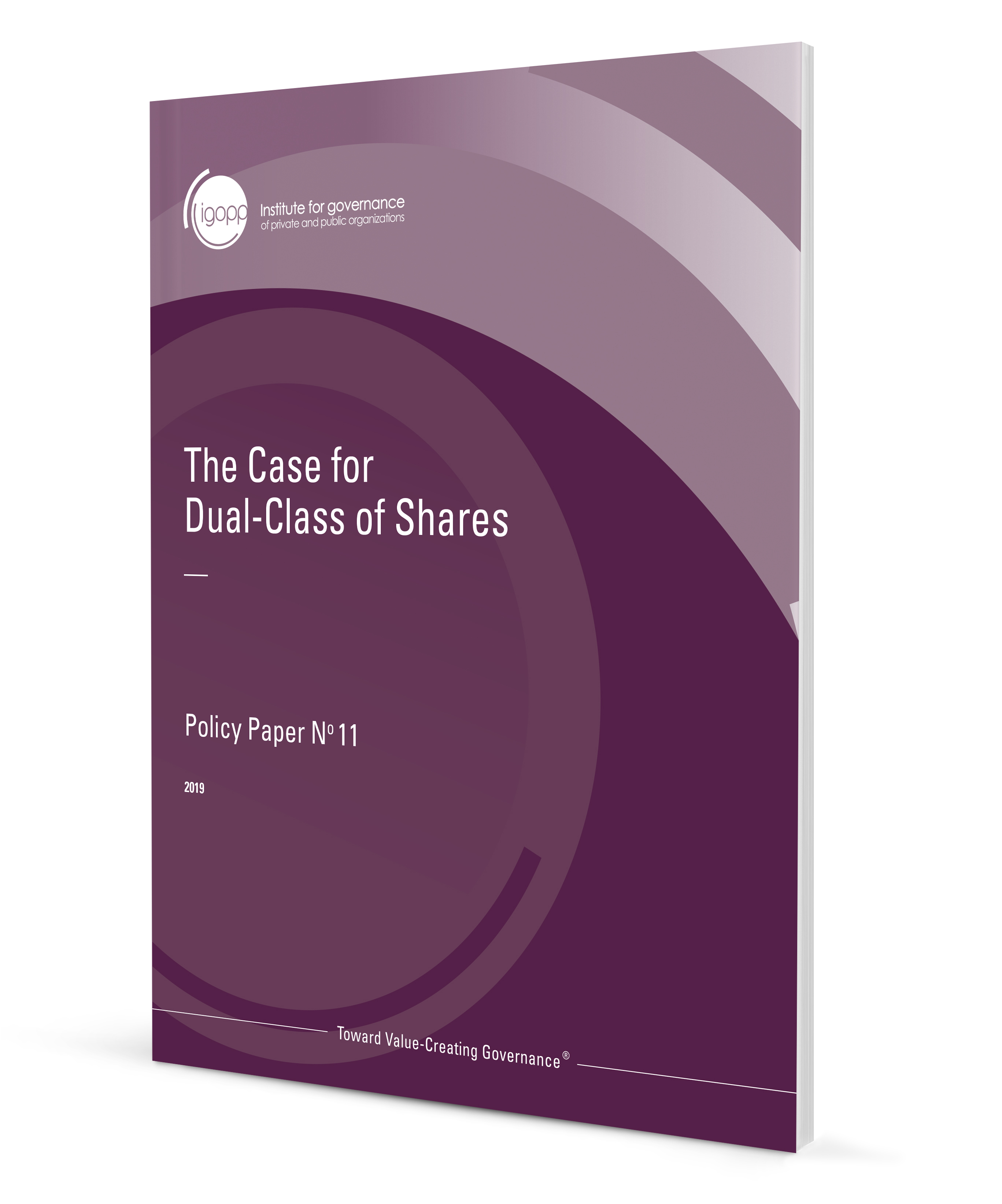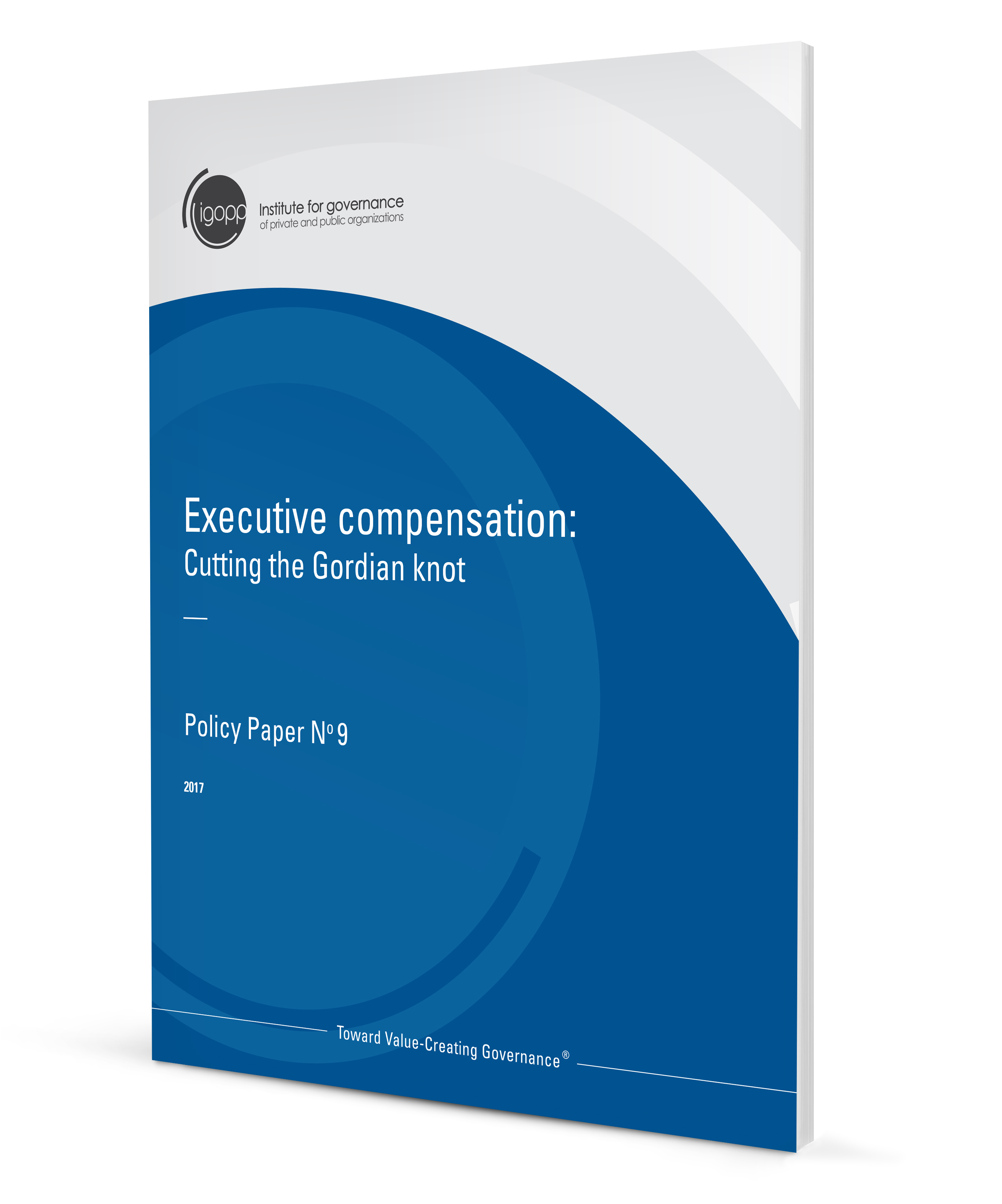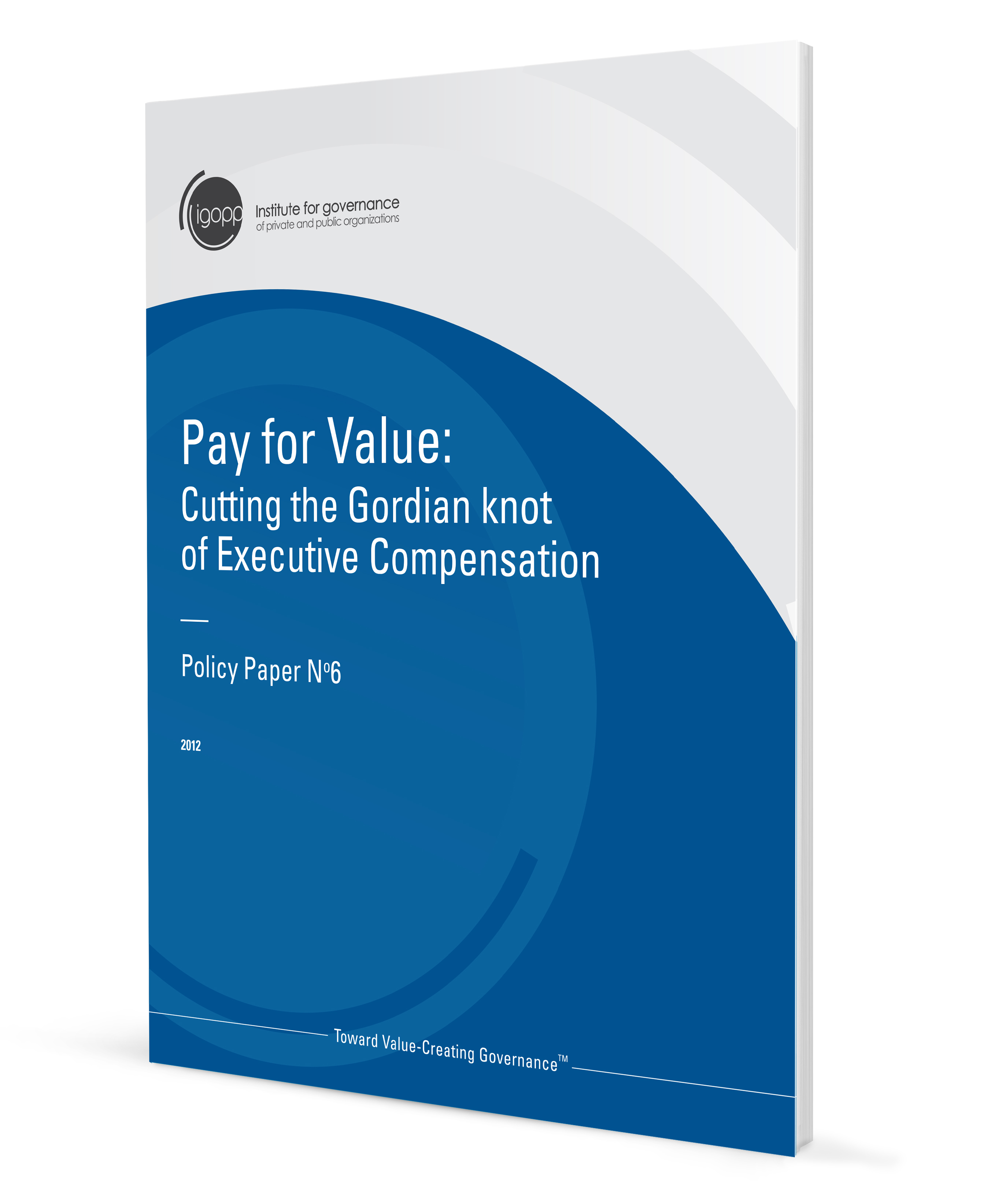The Independence of Board Members
A Quest for Legitimacy
In a report entitled The Independence of Board Members: A Quest for Legitimacy, the Institute for Governance of Private and Public Organizations (IGPPO) proposes that any organization governed by a board of directors should strive to constitute a board that is both legitimate and credible.
The issue at stake is not so much the independence of boards, but their legitimacy and credibility. Independence is meaningful only insofar as it reinforces the legitimacy of a board. And only through its legitimacy does a board acquire the authority to oversee the management of an organization.
For public or private organizations without shareholders or with no active shareholder owning more than 10% of the common equity, boards should include a clear majority of independent members. In addition, all standing committees should be made up exclusively of members independent of management.
However, the boards of exchange-listed companies with significant shareholders need to accommodate two forms of legitimacy:
- That which comes from the independence of directors from management and significant shareholders as well as from the manner of their nomination and election;
- That which comes from the financial and professional engagement of significant shareholders.
In these companies, both forms of legitimacy must be represented on the board and on all standing committees.
The issue is a key one in Quebec and the rest of Canada. The majority (133) of the 253 Canadian firms making up the S&P/TSX Index (i.e., the largest listed corporations in Canada) have at least one shareholder with 10% or more of the votes. In close to one-third of all large Canadian companies, at least one board member is a significant shareholder or a representative of that shareholder.
Current rules and guidelines dictate that the majority of board members and all members of standing committees should be independent not only from management but also from significant shareholders. However, in Quebec and elsewhere in Canada, a number of large corporations have one or more significant shareholders, including Couche-Tard, Bombardier, CGI, Power Corporation, Jean Coutu Group and Transcontinental.
As significant shareholders come with considerable legitimacy and credibility stemming from their financial, time and energy commitment, their presence of the board and on standing committees stands to reason.













